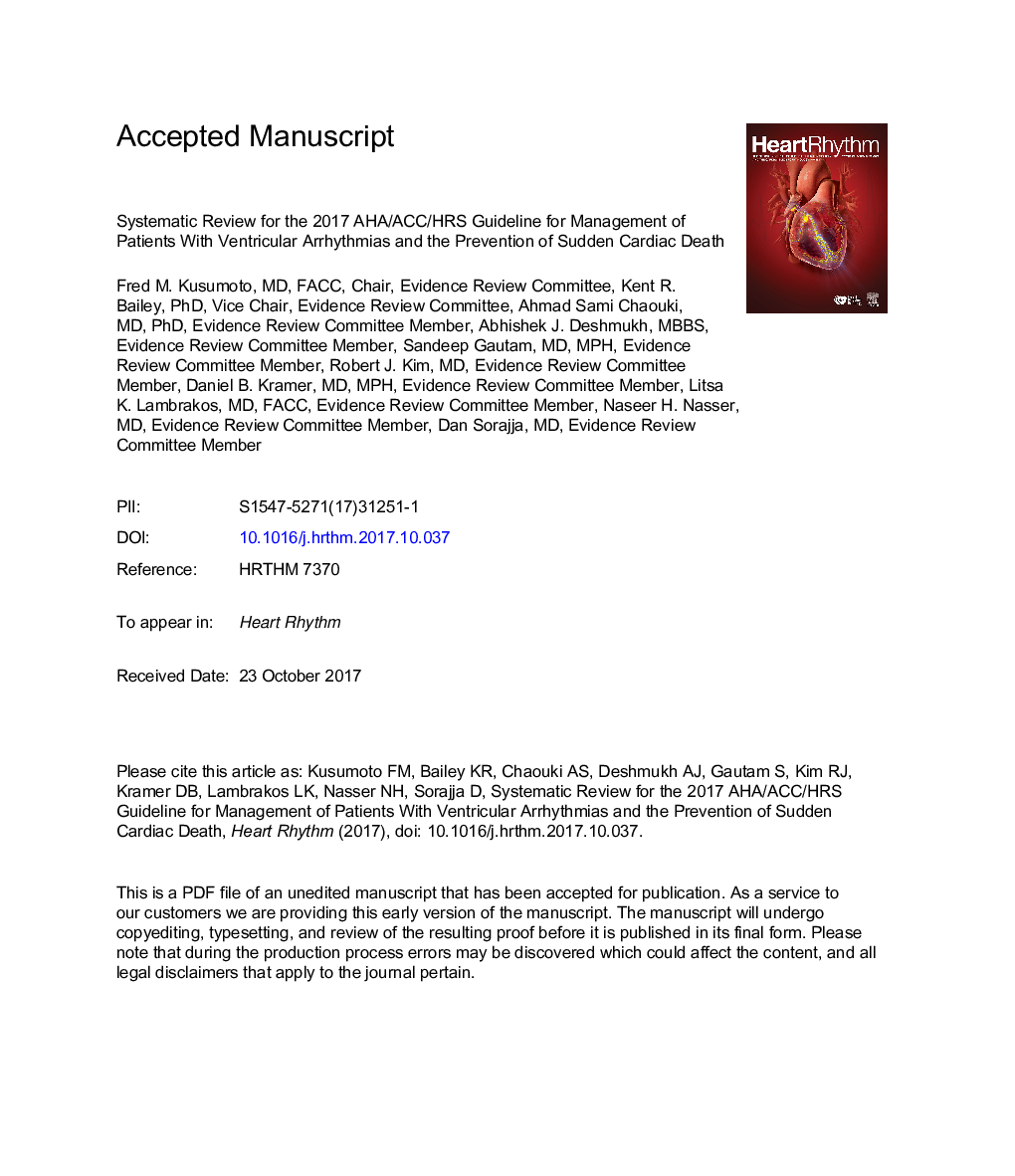| Article ID | Journal | Published Year | Pages | File Type |
|---|---|---|---|---|
| 11019019 | Heart Rhythm | 2018 | 40 Pages |
Abstract
Ten studies were reviewed that evaluated ICD use in older patients and 4 studies that evaluated unique patient populations were identified. In our analysis, ICD implantation was associated with improved survival (overall hazard ratio: 0.75; 95% confidence interval: 0.67-0.83; p<0.001). Ten studies were identified that evaluated ICD use in patients with various comorbidities including renal disease, chronic obstructive pulmonary disease, atrial fibrillation, heart disease, and others. A random effects model demonstrated that ICD use was associated with reduced all-cause mortality (overall hazard ratio: 0.72; 95% confidence interval: 0.65-0.79; p<0.0001), and a second “minimal overlap” analysis also found that ICD use was associated with reduced all-cause mortality (overall hazard ratio: 0.71; 95% confidence interval: 0.61-0.82; p<0.0001). In 5 studies that included data on renal dysfunction, ICD implantation was associated with reduced all-cause mortality (overall hazard ratio: 0.71; 95% confidence interval: 0.60-0.85; p<0.001).
Keywords
Related Topics
Health Sciences
Medicine and Dentistry
Cardiology and Cardiovascular Medicine
Authors
Fred M. (Chair, Evidence Review Committee), Kent R. (Vice Chair, Evidence Review Committee), Ahmad Sami (Evidence Review Committee Member), Abhishek J. (Evidence Review Committee Member), Sandeep (Evidence Review Committee Member),
